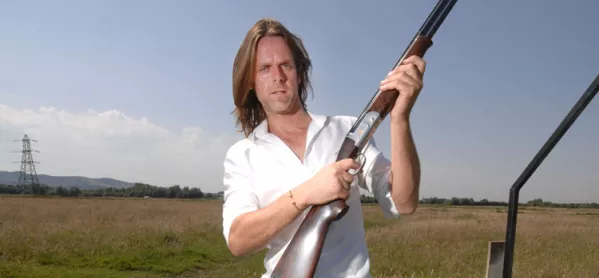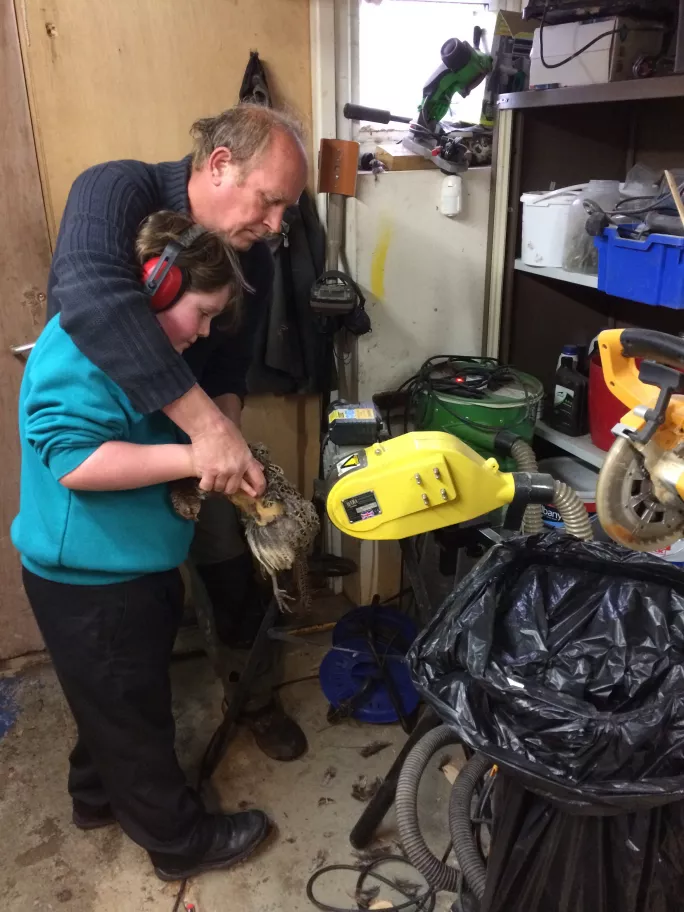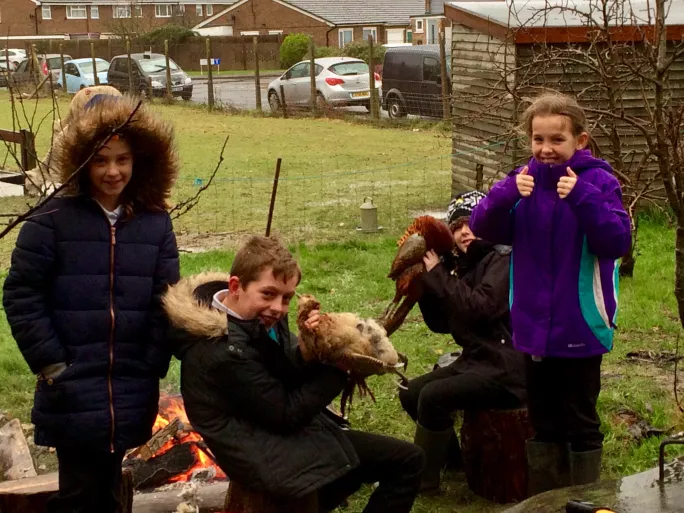“If you have a child that is more practical, that is not getting there academically - and you do not build their confidence - you do not equip them with life skills, then how have you prepared them for life?”
Alex Richards is the farm manager at West Rise Junior School in Eastbourne. The school is famous for its risk-embracing pedagogy, with students engaged in multiple out-of-the-classroom lessons, predominantly on a large marshland rented from the council.
Since winning the Tes Primary School of the Year award in 2016, it has received a lot of coverage for taking its students shooting and teaching hunting skills and for its headteacher, Mike Fairclough, a self-proclaimed hippy.
Outdoor learning
But for this episode of Tes Podagogy, I went down to the school to look beyond the headlines, to find out what drives the pedagogical approach and to talk to the children about their experiences at the school.
Alex’s quote above sums up the ethos: this is a school that takes its responsibilities to its deprived catchment area very seriously.
“When I just got married and we were hard up, I was able to go out and come back with 30 quid, because if I had to earn some money I could cut a load of logs. I had the skills and the confidence to do it,” says Alex. “Are we doing that for kids now in schools? If we can get kids to have the confidence, if they grow up and they are hard up - and with society the way it is that is a possibility - then I can give that child who might not be excelling in the classroom, the kid that is very practical, the confidence to knock on that door or go on to that building site and ask for work.”
Educating the whole child
If a school offers only a single-track academic education, they are failing pupils, says Mike, who is also a Tes columnist. And that goes for every child, whether they are academic or not.
“It is about developing the whole child…children leaving us, I want them to be able to embrace who they are as an individual, it is not about making them all the same - and within that I want children to be able to leave us with greater resilience, being able to persevere, to be flexible, and to be creative… to be able to have a successful life in the future.”
In the podcast, I chat to pupils, to Mike, to Alex and to other staff members to see how they balance an academic programme that has put the school among the best in terms of results in the region - and a pedagogy aimed at life lessons, too.
I went down on a snowy day in December and - a warning - the podcast also contains audio of the gutting, cooking and eating of pheasants.
You can listen for free by downloading the podcast from iTunes or listening below
Want to keep up with the latest education news and opinion? Follow Tes on Twitter and Instagram, and like Tes on Facebook
As an added bonus this week, here is a video of Tes editor Ann Mroz on a quad bike with Alex Richards:


